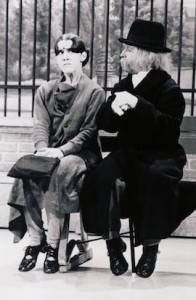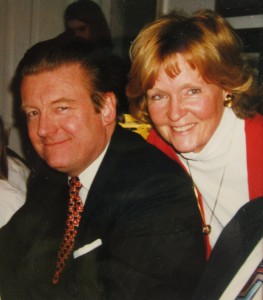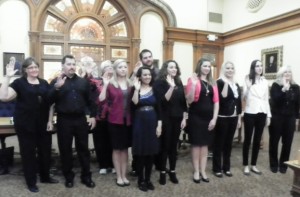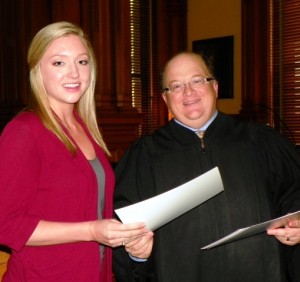Years ago I read the story of a medical doctor who donated his time once a week to trim the toenails of elderly folks, because they couldn’t get the job done themselves. Some had neck or back troubles and couldn’t bend. Others had toenails that were so calcified and thick, they needed professional equipment to cut them.
 As I remember the story, his service took place at a local library, and the doctor refused any payment. Surely handling one pair of old feet after another wasn’t pleasant, but week after week he showed up with his clippers, helping just because he wanted to, no strings attached. He was both dependable and trustworthy.
As I remember the story, his service took place at a local library, and the doctor refused any payment. Surely handling one pair of old feet after another wasn’t pleasant, but week after week he showed up with his clippers, helping just because he wanted to, no strings attached. He was both dependable and trustworthy.
After thinking about this man and his honorable undertaking, I tried to remember the last time I did something quietly righteous like that. I came up empty. I did remember a couple of times when I offered to help strangers but received negative responses: “That’s ok. I can handle it. Thanks anyway.” The general rule of thumb is, strangers can’t be trusted.
 It’s interesting that today’s general public is suspect of anyone offering help. Most will walk away as if they didn’t hear the offer, careful not to make eye contact. It reminds me of a vignette from the sixties TV show “Laugh In” when a stranger offered to help Ruth Buzzi (dressed as an old lady). She beat him back with her handbag.
It’s interesting that today’s general public is suspect of anyone offering help. Most will walk away as if they didn’t hear the offer, careful not to make eye contact. It reminds me of a vignette from the sixties TV show “Laugh In” when a stranger offered to help Ruth Buzzi (dressed as an old lady). She beat him back with her handbag.
That was funny 45 years ago, mostly because it was the opposite of what people usually did back then. Believe it or not, most accepted help from strangers. These days, rejecting acts of kindness is the norm. For example, if you volunteer to help someone load groceries into her car or even ask if you can take her empty cart back for her, typically she’ll say, “No thanks.”
When I was growing up, a stranger might ask to hold a baby while her mother checked out at the grocery store, and the mother would smile and say, “Oh, thank you so much!” Today that’s unthinkable. Our trust in each other has been eroded by too many experiences of broken trust and its painful consequences.
Maybe that’s why some people find it difficult to trust God. If they’ve never known a trustworthy relationship, then trusting him seems like just one more risk they don’t want to take. If they got to know him, however, they would discover he is trustworthy to the nth degree.
When he offers to help, he means it and will always follow through. Of course we have to give him the chance. If we say, “No thanks. I can handle it myself,” he’ll probably let us. But if we accept his help, we can completely trust him without reason to fear. All the proof we need is in his flawless track record.
To put it in practical terms, we can trust him to help us much like the toenail-cutting doctor helped those oldsters, without asking for payment, and doing it just because he wants to.
“The Lord is trustworthy in all he promises and faithful in all he does.” (Psalm 145:13)







